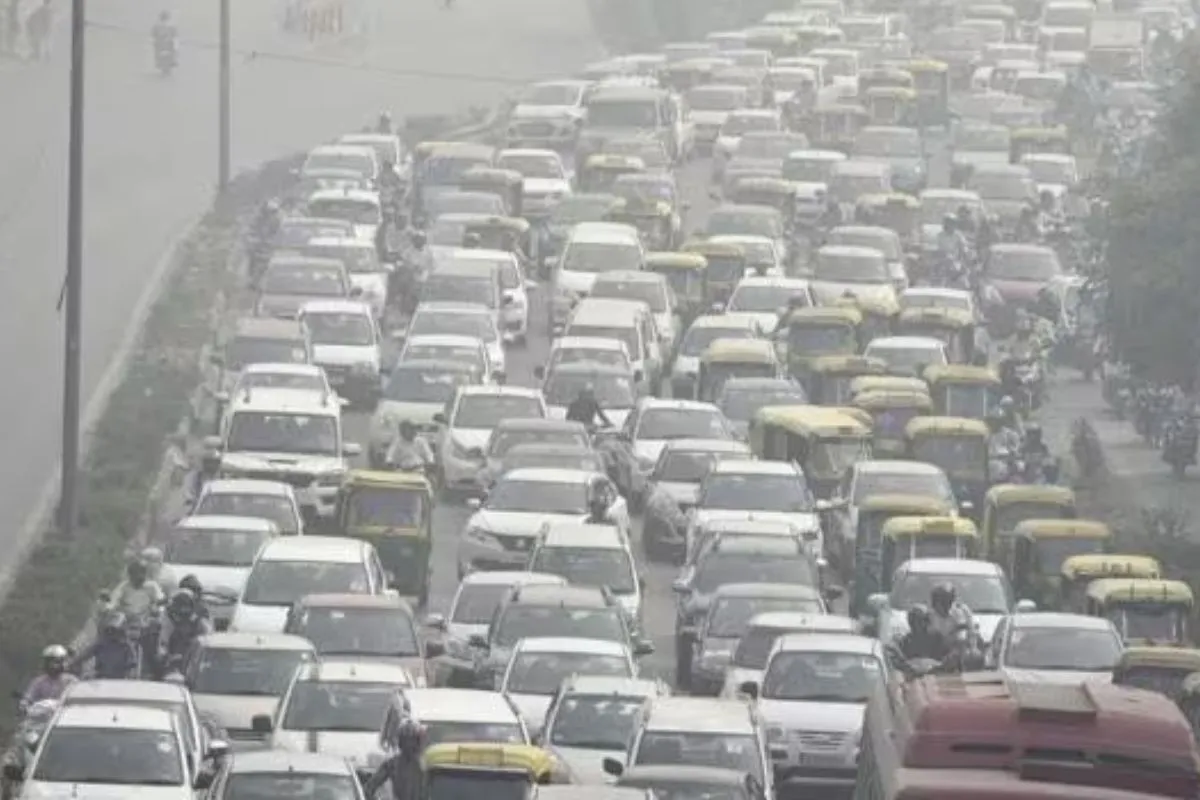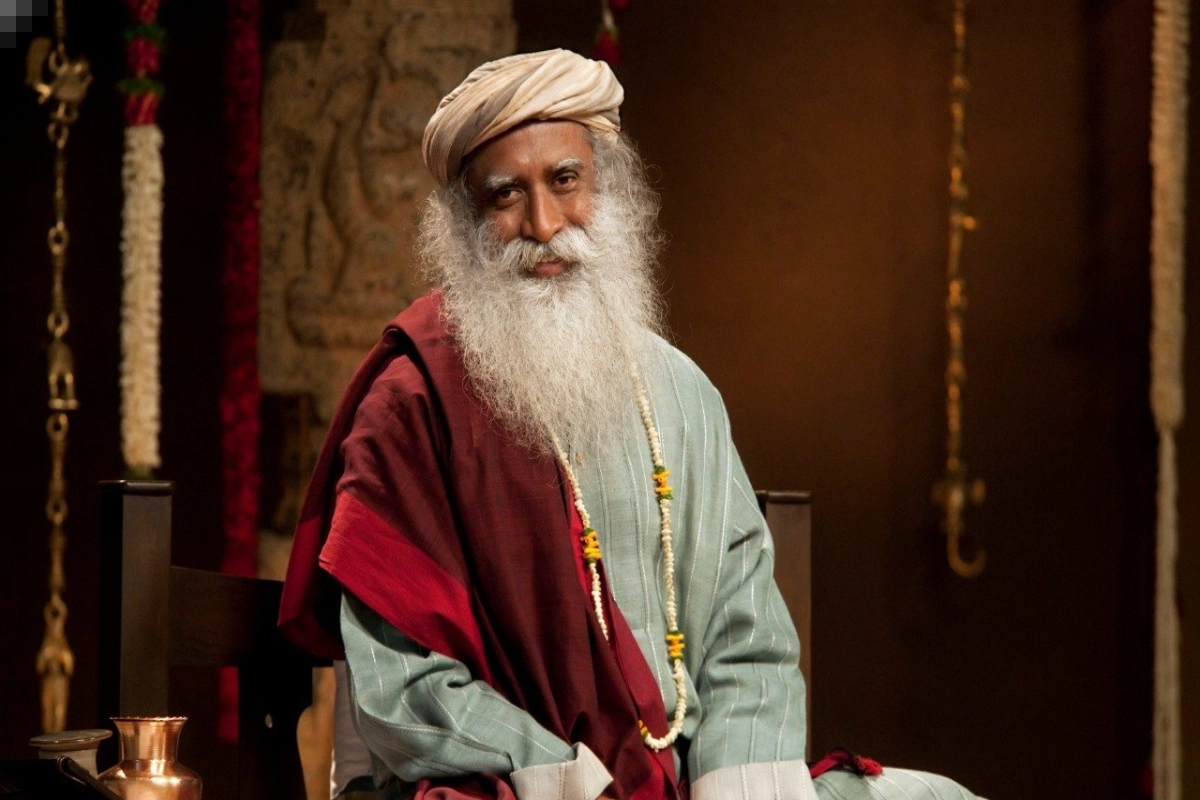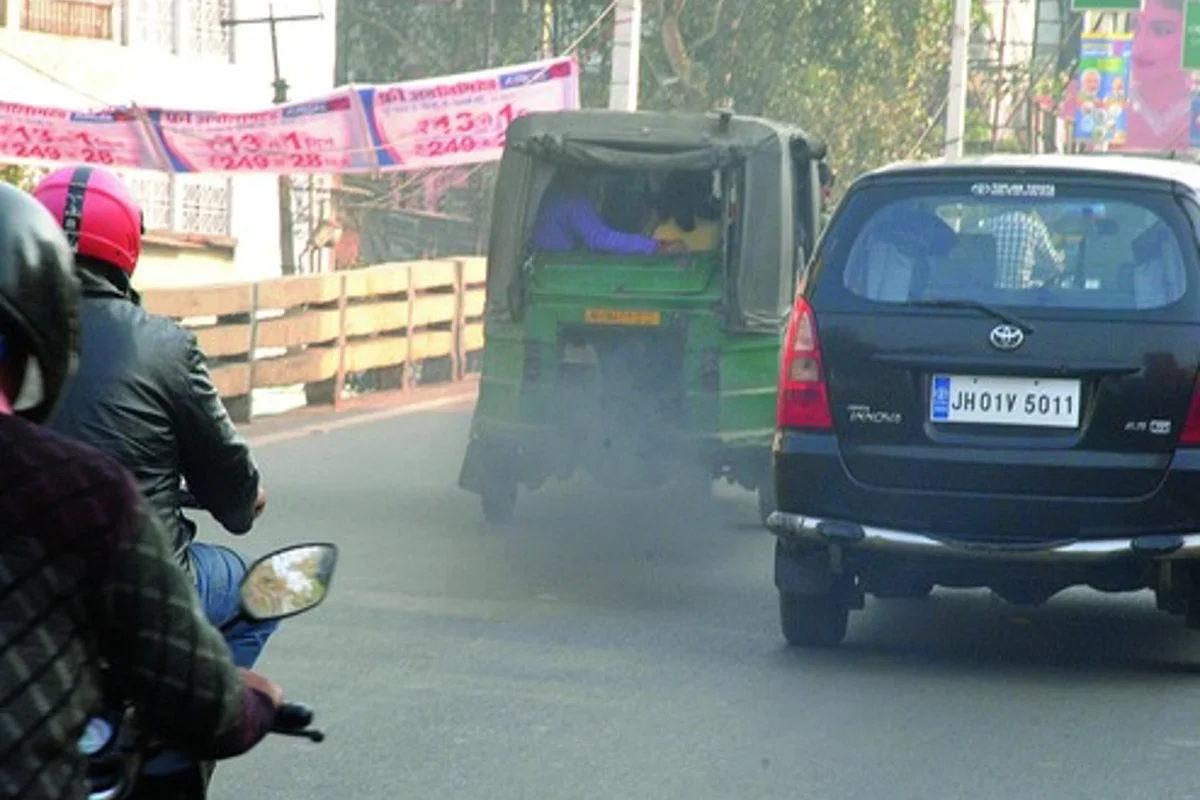New Delhi: On Wednesday, October 19, 2022, the Commission for Air Quality Management (CQAM) in the NCR and surrounding areas forecast “very poor” air quality in Delhi ahead of Diwali and ordered officials to implement stage two of the Graded Response Action Plan (GRAP), which includes prohibiting the use of coal and firewood in lodging facilities, dining establishments, and outdoor eating areas. The Air Quality Index (AQI) may drop into the “very poor” category starting on October 22, according to a projection made by the sub-Committee during a meeting on Wednesday. The AQI is predicted to get worse after Diwali on October 24.
“Therefore, in an effort to prevent the further deterioration of the air quality, the sub-Committee decided that all actions as envisaged under Stage II of the GRAP – “Very Poor” Air Quality (Delhi AQI ranging between 3O1-4OO), be implemented in right earnest by all the agencies concerned, with immediate effect in the NCR in addition to all actions under Stage I,” the CQAM said in a directive.
The GRAP, in particular, is a collection of air pollution control methods used in Delhi and nearby areas based on the severity of the problem. It is divided into four stages.
Also Read: China: Protests Against Xi Jinping Intensify Following ‘no to great leader’ placard in Beijing
Delhi has implemented curbs because of the poor air quality in advance of Diwali.
Except for essential services related to national security, defense-related activities, projects of national importance, telecommunication, data, medical, railway, and metro rail services, airports, inter-state bus terminals, sewage treatment facilities, and water pumping stations, the use of diesel generators is prohibited under stage two of GRAP.
Under stage two, it is also prohibited to utilise coal or wood in tandoors at lodging facilities, dining establishments, or open-air cafes.
In order to discourage private transportation and boost the frequency of bus and subway services, the authorities must likewise raise parking prices.
Stage two also calls for daily vacuum-based road cleaning, water spraying to reduce dust pollution, and rigorous adherence to dust control regulations at construction and demolition sites.
In order to discourage the usage of generator sets, the involved agencies have also been urged to guarantee an uninterrupted power supply.
Delhi’s six-month prison sentence for setting off fireworks on Diwali
The Arvind Kejriwal-led administration declared on Wednesday that buying or using firecrackers in Delhi on Diwali will result in a maximum six-month jail sentence and a fine of Rs. 200.
Gopal Rai, the Delhi Environment Minister, told a press conference that violating Section 9B of the Explosives Act will result in a fine of up to Rs 5,000 and three years in prison if firecrackers are produced, stored, or sold in the nation’s capital.
Also Read: UK: “I have made a mistake” Home Secretary Suella Braverman Steps Down from Liz Truss Cabinet
According to Rai, 408 squads have been formed to carry out the prohibition.
The Revenue Department has established 165 teams, the Delhi Pollution Control Committee has formed 33 teams, and the Delhi Police has 210 teams operating under assistant commissioners of police.
On October 21, a public awareness campaign called “Diye Jalao Patakhe Nahi” will begin, according to Rai. On Friday, 51,000 diyas will be lit at Central Park in Connaught Place by the Delhi government.
According to the minister, 188 infractions have been found and 2,917 kg of firecrackers have been seized as of October 16.
Watch Video:
“Every year, pollution levels increase around Diwali. The explosion of firecrackers is the main cause. Firecracker emissions are particularly harmful, especially to children, women, and the elderly “explained he.
“As a result, the Delhi government has once again outlawed the manufacture, distribution, and use of any kind of firework. The restriction applies to online firework delivery, “said the minister.
Additionally, he requested Bhupender Yadav, the Union Environment Minister, to see that the NCR as a whole completely complies with the ban on firecrackers because “the smoke from firecrackers burst in the region hurts the people in Delhi as well.”
According to the DPCC, fireworks had significantly changed the PM10 and PM2.5 concentrations in Delhi on Diwali night (November 4). The day after Diwali, the capital’s 24-hour average air quality index reached 462, the highest level in five years, due to emissions from farm fires and firecrackers.
The local government renewed its two-year-old ban earlier this month on the production, sale, and use of any kinds of firecrackers through January 1st. This restriction includes use during Diwali.
Keep watching our YouTube Channel ‘DNP INDIA’. Also, please subscribe and follow us on FACEBOOK, INSTAGRAM, and TWITTER












